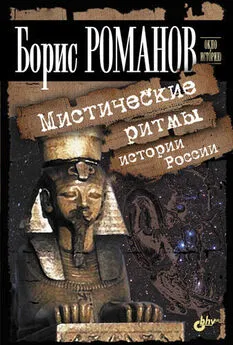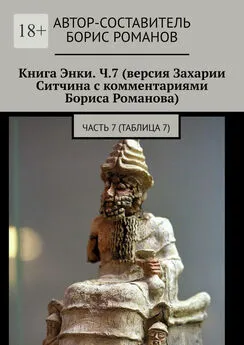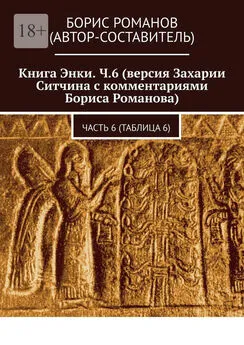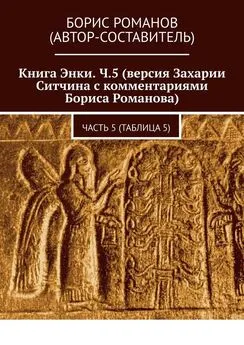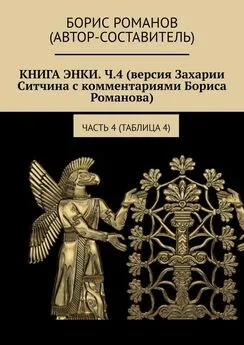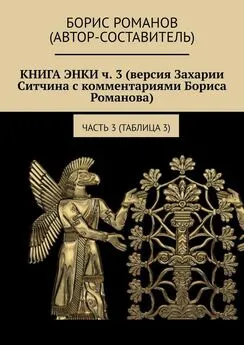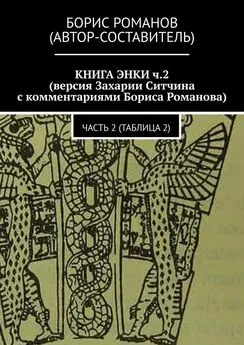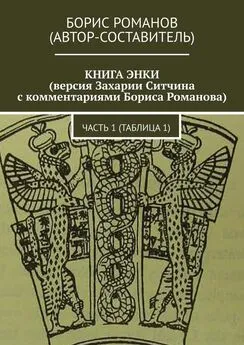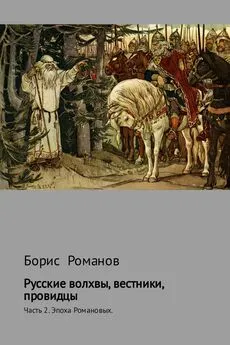Борис Романов - Rasputin
- Название:Rasputin
- Автор:
- Жанр:
- Издательство:неизвестно
- Год:2017
- ISBN:нет данных
- Рейтинг:
- Избранное:Добавить в избранное
-
Отзывы:
-
Ваша оценка:
Борис Романов - Rasputin краткое содержание
Rasputin - читать онлайн бесплатно ознакомительный отрывок
Интервал:
Закладка:
Rasputin. False myths and unknown true.
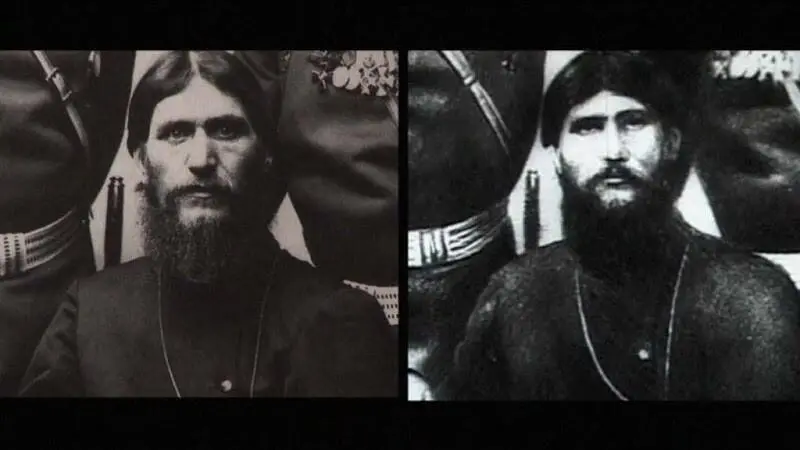

On the cover you can see two photos of Grigory Rasputin: non retouched (original photo) made during the life of Rasputin (left) and retouched, from Soviet publications after 1917 (right). In this brochure, we'lll tell when and how were created the false myths about Rasputin. We'll also tell the truth about him.
F oreword
Before discussing the origin of the false myths, let me give here excerpts from the Wikipedia's article about Rasputin:
http://en.wikipedia.org/wiki/Rasputin
<
Rasputin was neither a monk nor a saint; he never belonged to any order or religious sect.[4] He was considered a strannik ("pilgrim"), wandering from cloister to cloister. He was obsessed by religion[5] and impressed many people with his knowledge and ability to explain the Bible in an uncomplicated way.[6][7][8][9] It was widely believed that Rasputin had a gift for curing bodily ailments. In 1907 Rasputin was invited by Nicholas and Alexandra Feodorovna to heal their only son, tsarevich Alexei, who suffered from hemophilia. "In the mind of the Tsarina Rasputin was closely associated with the health of her son, and the welfare of the monarchy."[10]
Rasputin was regarded as a starets ("elder") by his followers, who also believed him to be a psychic and faith healer.[11] His critics referred to him by the same term in an ironic fashion. He never considered himself to be a starets.[12] Rasputin spoke an almost incomprehensible Siberian dialect[13] and never preached or spoke in public.[14] The Tsarina saw Rasputin as a "Man of God" and clairvoyant,[13] but his enemies saw him as a debauched religious charlatan and a lecher. Brian Moynahan describes him as "a complex figure, intelligent, ambitious, idle, generous to a fault, spiritual, and – utterly– amoral."[15] He was an unusual mix, a muzhik, prophet and at the end of his life a party-goer.[16]
Rasputin began as a symptom of the royal family's isolation from the public; he ended by deepening that isolation to an unbridgeable chasm.[17] While his influence and role may have been exaggerated, historians agree that his presence played a significant part in the increasing unpopularity of the Tsar and his wife immediately prior to the February Revolution of 1917.[18] The conspirators, who did not accept a peasant being so close to the Imperial couple, had hoped that Rasputin's removal would cause the Tsarina to retreat from political activities. They also believed that Rasputin was an agent of Germany, but he was more of a pacifist, opposed to all wars.[19]
There is much uncertainty over Rasputin's life and influence, as accounts are often based on dubious memoirs, hearsay and legend.[11] Colin Wilson said in 1964 that "No figure in modern history has provoked such a mass of sensational and unreliable literature as Grigory Rasputin. More than a hundred books have been written about him, and not a single one can be accepted as a sober presentation of his personality. There is an enormous amount of material on him, and most of it is full of invention or wilful inaccuracy. Rasputin's life, then, is not 'history'; it is the clash of history with subjectivity."[20]
In Russia, Rasputin is seen by many ordinary people and clerics, among them the late Elder Nikolay Guryanov, as a righteous man.[21] However, Alexy II of Moscow said that any attempt to make a saint of Rasputin would be "madness".[22]>>
***
Myths about the personality of Grigori Rasputin and about his role in the life of the Royal family were created as on the eve of Russian revolution (1912-1917 years), so and later (in the USSR in 1917-1920s). These myths are still alive, and still interest in his personality is great – both in Russia and abroad. We read in Wikipedia:
http://en.wikipedia.org/wiki/Rasputin
<<���…>
The disco single "Rasputin" (1978) by the German-based pop and disco group Boney M references Rasputin's alleged affair with Alexandra Fyodorovna. The tune is based on the Turkish song "Kâtibim". This song was later covered by the band Turisas.
2003 Einojuhani Rautavaara composed Rasputin, an opera in three acts
In 2011, Josée Dayan directed a French-Russian produced a film on Rasputin for television called Raspoutine which starred Gérard Depardieu in the role of Rasputin.
Rasputin was the subject of the BBC Radio 4 series Great Lives, first aired on 1 January 2013.
Rasputin is the subject of a musical theatre production, Ripples to Revolution, by Peter Karrie.
With the aim of casting Leonardo di Caprio as Rasputin, Warner Brothers have bought the rights to a screenplay by Jason Hall.>>
Bibliography of books about Rasputin in Russia has more than forty books (and thousands of articles in the media). The most famous study was published by Edvard Radzinsky in 2004 [23] , but after 2004 the new books on the subject continue to be published almost every year. Among them are also apologetic study (or almost apologetic ), as [ 24, 25 , 26]. The author of this brochure is devoted to this topic a big chapter in my book "The Emperor , who knew the fate. And Russia, who did not know" [27] . Study set out below are based largely on the materials of my book – and I hope that this study is objective.
Some Russian movies about Rasputin became almost a "cult." Unfortunately, the most popular of them ("Agony" by Elem Klimov, 1985, a work of a talented) is very biased. Year after year (and several times per year) Russian TV channel again and again show this film ("Agony") – the film is so talented and popular as it is full of old false myths about Rasputin and about the Tsar's family.
It would seem that in recent years much has been written about the streams of slander and lies that have hit the Tsar's family in during the time of Provisional Government (March-November 1917) and then in the Soviet Russia and the USSR. Rivulets of dirty rumors begun in 1916, then it turned into the stormy fetid flows. If before the February revolution, these streams flooded only drunk and hysterical Petrograd, then the Provisional Government consciously and purposely hit them in the whole of Russia.
So, it turns out, this heinous flow of slander and lies of nine months of 1917 – it still generates most people's notion about Raspuitin ! .. For almost 100 years!
Have to tell all this in detail.
Myths about Rasputin until March 1917.
Until 1912 Rasputin was accused only of belonging to a banned religious sect "whips" (where practiced group sexual orgies). However, the official inquiries in 1903 and 1912's have not confirmed these rumors.
First new false rumors (and rough jokes) about Rasputin's debauchery (and his impact on the Empress) appeared in 1912-1915. They proceeded on the one hand, from the revolutionaries (SRs and the Bolsheviks), and they were designed for ordinary people (and for soldiers). On the other hand, false rumors were created and started from the grand salons of some relatives of the royal family, which were in opposition to Nicholas and Alexandra.
The situation has sharply deteriorated in the autumn of 1916, when the Ministry of the Interior and the Russian counter intelligence discovered a large corruption in organizations "Zemgor" and “Military-Industrial Committee», which were led by prominent opposition leaders of the State Duma, Prince Lvov and Guchkov. Cadet Leader Miliukoff provided to these organizations for strong political support, he was also the leader of the opposition bloc "progressives" in the State Duma.
Then, November 1, 1916 followed by the famous speech Milyukov in the State Duma ("What is it – stupidity or treason?"), In which he accused the Empress and Rasputin in a betrayal. According to some modern Russian historians, this Milukoff's speech marked the transition opposition offensive to forestall future charges in corruption and declare these future charges as "politically motivated." [28] [29] [30]. Since November 1916 Miliukoff and Gutchkov sharply stepped conspiracy against Nicholas II, which they have successfully implemented at the end of February 1917 (with a few generals who have previously been implicated by them in this conspiracy).
Provisional Government. Lies and slander in "the freest country"
(Based on the eponymous article by S. Fomin ("Russian Gazette" of 19 December 2003 http://www.rv.ru/content.php3?id=1402 ) and "The Encyclopedia of the Great Patriotic films." Agony»» ( http://top-rufilms.info/p1-84.html ), with additions and comments of the author.) More details about all of this, you can read in my book [27] .
The first Provisional Government consisted mainly of the conspirators. Prince Lvov became Prime; Miliukov and Guchkov headed ministries . Naturally, winning the conspirators wanted to justify their coup and "playing card Rasputin" began to actively play out in the government media. It is also clear that this company was actively supported by all the leftist forces.
Simultaneously, the Provisional Government accused of betraying the motherland Rasputin and the Empress . They , as well as the deposed imperial government were also accused of corruption. However, these numerous accusations further found no documentary evidence – despite the fact that the Provisional Government has put a lot of effort to search for evidence. To search for evidence, at the beginning of March 1917 (immediately after the abdication of Nicholas II) was established National Extraordinary Investigation commission (NEIS) of Provisional Government.
By the summer of 1917 the members of the committee NEIS stated that they do not find any of the offense under investigation – and when the chairman of the commission (Muraviev) tried to force them to change their minds , some of them resigned ( in particular, the famous prosecutor Rudnev ) . In 1917 , Kerensky was forced to admit that they " did not find elements of crime in any actions of Nicholas II and his wife." Same Kerensky confirmed to British Ambassador Buchanan. Also NEIS failed to show any corruption charges former tsarist ministers, the general manager and other senior officials , both civilian and military and naval authorities. [31, 32] .
Конец ознакомительного фрагмента.
Текст предоставлен ООО «ЛитРес».
Прочитайте эту книгу целиком, купив полную легальную версию на ЛитРес.
Безопасно оплатить книгу можно банковской картой Visa, MasterCard, Maestro, со счета мобильного телефона, с платежного терминала, в салоне МТС или Связной, через PayPal, WebMoney, Яндекс.Деньги, QIWI Кошелек, бонусными картами или другим удобным Вам способом.
Интервал:
Закладка:

